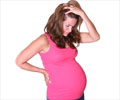Weight gain of more than 10% body weight after a breast cancer diagnosis increases breast cancer mortality. Physical activity prevents weight gain.
Highlights
- Avoiding weight gain and indulging in physical activity reduces the chances of breast cancer recurrence.
- Weight gain of more than 10% body weight after a breast cancer diagnosis increases breast cancer mortality and all-cause mortality.
- At least 30 minutes of moderate exercise a day, five days a week, or 75 minutes of vigorous exercise per week prevents weight gain.
- Receiving advice from an oncologist to exercise more has been shown to increase patients' level of activity.
Review of Previous Studies
The review of 67 published articles looks at a variety of lifestyle factors, such as exercise, weight, diet, smoking and more, and examines the changes women can make to improve their chances of survival and reduce the risk of cancer recurring. About one-quarter of women diagnosed with early stage disease will eventually die of later metastases.
The evidence is inconclusive on the impact of some lifestyle behaviors, such as specific diets, alcohol consumption and vitamin supplements.
Exercise Reduces Side effects of Breast Cancer Drugs
AI’s are a class of drugs prescribed for breast cancer to reduce the risk of recurrence as it blocks the production of estrogen or its receptors. AI’s cause severe joint pain and 40% of survivors quit medication due to the pain.
Key findings
- Avoid weight gain : Weight gain during or after breast cancer treatment is linked to breast cancer-related death. Women who are overweight or obese at diagnosis also have poorer prognoses.
- Exercise : Patients should engage in at least 30 minutes of moderate exercise a day, five days a week, or 75 minutes of vigorous exercise per week. Two to three sessions of strength training for large muscle groups are also recommended.
- Diet : No specific type of diet has been shown to reduce the risk of breast cancer recurrence. Evidence indicates that patients do not need to avoid soy, and it may help with weight management if used to replace higher-calorie meat protein.
- Vitamin supplementation : Moderate consumption of vitamin C may be helpful although more evidence is needed. Vitamin D supplements may be taken to maintain adequate levels for bone strength, since chemotherapy and hormonal treatments can reduce bone density.
- Smoking : Stop smoking. While it is unclear if stopping smoking after a breast cancer diagnosis affects recurrence, the risk of death from smoking-related health issues is a strong reason to quit.
- Alcohol intake : Limiting consumption to one or fewer alcoholic drinks per day may help reduce the risk of a second breast cancer.
"Making positive lifestyle changes can also be psychologically beneficial to patients by empowering them, since the feeling of loss of control is one of the biggest challenges of a cancer diagnosis," write the authors.
Physicians can play an important role in helping patients make positive changes. "Because it is common for patients to reduce their level of physical activity after a breast cancer diagnosis, it is important for health care professionals to promote and encourage exercise in this patient population," the authors write.
"Simply receiving advice from an oncologist to exercise more has been shown to increase patients' level of activity."
An important point to emphasize is that the breast cancer patients in the studies showing the benefits of lifestyle changes were also receiving conventional anticancer therapy; lifestyle changes should never be used as a substitute for standard therapy.
The authors caution that these recommendations are not for all women with breast cancer. Some breast cancers have aggressive biology and will recur despite the most meticulous lifestyle behaviors.
"Patients should not be made to feel that inadequate lifestyle changes have led to recurrence of their cancer," they conclude.
Reference
- Ellen Warner et al., Exercise most important lifestyle change to help reduce risk of breast cancer recurrence, Canadian Medical Association Journal (2017).
- Gwendolyn Thomas et al., Researcher examines effect of exercise on breast cancer survivors, Obesity Journal (2017).
Source-Medindia
















